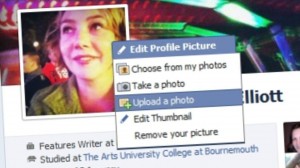You need to consider using Facebook if your target audience uses Facebook. There are 1.11 billion users of Facebook, so there is a good chance some of your readers are there. It is a great tool if you are just beginning to build an audience platform; which should start a year before you submit a book proposal and two years before the publication date. Don’t wait to begin building an audience platform until after your book is written or published.
So what is the difference between a personal profile and a page?
Pages are different than Personal Profiles. Individual users have their own personal ‘Profile’ and network by ‘Friending’ those whom they know. Facebook Pages are created by businesses, nonprofit organizations, private groups and some government agencies. They do not have ‘Friends’ but fans who ‘Like’ them. Your favorite restaurant, music group, movie star, local farmer, author, artist, or political group may have its own Page.
So do you need an author Facebook Page?
Probably not; unless you have previously published and have already created an audience platform from your Page. If you’re just getting started, Facebook requires you begin with a personal profile before you can create a Page. Start with a Personal Profile.
If you don’t already have a Facebook Page, don’t bother creating one now.Last year, those with Pages noticed their posts were viewed by only a fraction of the people who Liked their Page. Facebook changed its algorithm so that Pages had to pay to “promote” their posts.
Around the same time Facebook began to monetize Pages, they initiated ‘subscriptions’ to your personal profile. You can still have up to 5,000 “friends” on a personal profile, but an unlimited number of people can “subscribe” to your public posts there. We recommend you use your personal profile on Facebook. Wait until your publisher is about to release your book, then create a Facebook Page.
We do recommend you set up a custom URL for your Facebook personal profile as one more step toward solidifying your brand as an author. Here’s how to do this in 7 simple steps.
- Login to Facebook.
- Find Edit Profile on the left in the upper corner and click on it.
- Scroll down to Contact Information and click the edit pencil.
- Find and click on Add/Remove Email. This will take you to the General Account Settings.
- Click Edit to the right of Username. Here is where you enter your personal customization (http://facebook.com/yourname)
- Click Check Availability. If not try adding yourmiddlename.
- Be sure to Save your changes.
It’s that easy.

What do you do if you already have an author’s page and spend quite a lot of time tending it, knowing it’s not reaching that many people? Do I abandon it or keep it going? I can imagine making another page when my book is published under the title of the book, but it would be to much to tend three pages. I’m probably not the only writer wondering why they’re tending a page that doesn’t get to the intended audience. Thanks.
Great question, Elaine. If you are an author who already has a Facebook Page, how can you best maximize your time? Avoid bombarding your best friends with your marketing messages in a megaphone fashion. Sharing your Page status updates on your Personal Profile can leave some of your friends feeling like you are pushing instead of pulling people to what you have to say, share, endorse, and what you have found of value. Managing Pages and a Personal Profile has its ups and downs. Pages are for commercial ventures and this separates you the author from the product for sale. Growing an organic following means you need to pull people to your writing. Besides organic, there are viral and paid followings. Wish upon a star and take lessons in social media marketing for that viral post you dream of as a writer. Don’t pay for followers, ever. Gaming the algorithms or scamming the system does not work. Using any social media tool as a megaphone to sell your book will fall flat. Social media involves engagement and dialogue, i.e. a two-way conversation. Paying to promote or boost your posts won’t help you in the long run. Especially on Facebook. Data indicates users do not like the advertising and blatant marketing because it misses the point of social conversation. Choose a different social media tool to promote your book title such as GoodReads, where readers welcome news about forthcoming titles. Although, if your Friends on Facebook are like mine, they like books, ideas, and knowing more about your writing.